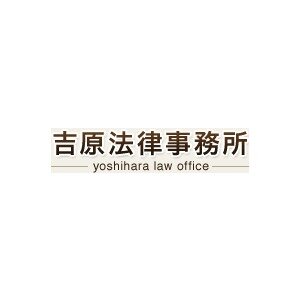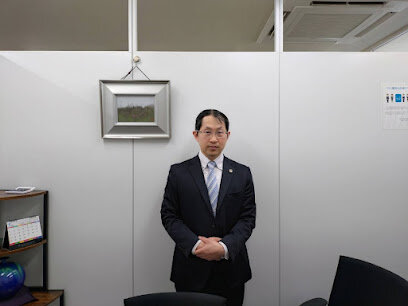Best Arrests & Searches Lawyers in Japan
Share your needs with us, get contacted by law firms.
Free. Takes 2 min.
Or refine your search by selecting a city:
List of the best lawyers in Japan
About Arrests & Searches Law in Japan
In Japan, the legal framework surrounding arrests and searches is primarily governed by the Japanese Constitution and the Code of Criminal Procedure. The Japanese Constitution guarantees certain fundamental rights, including protection from arbitrary arrest and search, which are designed to ensure the fair treatment of individuals in the judicial process. The Code of Criminal Procedure outlines the specific processes and conditions under which law enforcement can conduct searches and make arrests. This ensures a balance between effective law enforcement and the protection of personal freedoms.
Why You May Need a Lawyer
There are several common situations where individuals may require legal help concerning arrests and searches in Japan. These include being arrested or detained by the police, having property searched or seized, or if you believe your rights have been violated during an arrest or search. A lawyer can provide crucial assistance in understanding your rights, advising on legal procedures, and representing you in legal proceedings. Additionally, if you're a foreigner, language barriers and cultural differences can complicate your understanding of the process, making legal guidance even more essential.
Local Laws Overview
Key aspects of local laws relevant to arrests and searches in Japan include the requirement of a warrant for most searches and arrests, although there are exceptions for situations such as being caught in the act of a crime. Detention can be extended up to 23 days with judicial approval, during which a suspect can be interrogated. Suspects have the right to legal counsel but may not have a lawyer present during interrogations. Statements made during interrogations can significantly impact the outcome of a case, highlighting the importance of legal representation.
Frequently Asked Questions
What constitutes a lawful arrest in Japan?
An arrest in Japan is lawful when it is conducted with an arrest warrant, except in circumstances where a person is caught in the act of committing a crime or when there is an immediate need to prevent flight or destruction of evidence.
Do the police need a warrant to search my property?
Generally, yes. In most cases, the police need a search warrant issued by a judge to search your property. However, there are exceptions, such as emergency situations, where immediate action is necessary to prevent harm or destruction of evidence.
How long can the police detain a suspect without charge?
In Japan, a suspect can be detained for up to 23 days without being formally charged. This includes an initial 48-hour period, which can be extended upon the approval of a judge.
Can I have a lawyer present during police questioning?
While you have the right to consult with a lawyer at any time, Japanese law does not guarantee the presence of a lawyer during police interrogations. It's crucial to consult with a lawyer before or after questioning to understand your rights fully.
What should I do if I am arrested while visiting Japan?
If arrested in Japan, you should immediately request to contact your embassy and seek legal assistance. It's important to remain calm and avoid self-incrimination until you have legal guidance.
What rights do foreigners have when arrested in Japan?
Foreigners in Japan have the same legal rights as Japanese citizens, including the right to remain silent, access legal counsel, and contact their embassy. Language assistance should be provided during legal processes.
Can my belongings be seized without a search warrant?
While a search warrant is generally required, there are scenarios where law enforcement can seize items without one, especially if it's material evidence to prevent its loss or destruction.
Will a previous arrest affect my ability to re-enter Japan?
Having a criminal record in Japan can affect future entry, potentially leading to denial of visa applications. Each case is individually considered by immigration authorities based on its specifics.
What should I do if I believe my rights were violated during an arrest or search?
It's advisable to document all details of the incident and consult with a lawyer knowledgeable in Japanese law to explore possible legal actions or remedies.
How can I find a qualified lawyer to handle my case in Japan?
Several resources are available to find a lawyer, including the Japan Federation of Bar Associations, expat community recommendations, or your local embassy's list of legal services providers.
Additional Resources
For further information and assistance regarding arrests and searches in Japan, consider reaching out to the following resources:
- Japan Federation of Bar Associations
- Local embassies and consulates for international visitors
- Legal support hotlines available in multiple languages
- Public defenders’ offices for those unable to afford private counsel
Next Steps
If you find yourself in a situation involving an arrest or search in Japan, it's crucial to remain informed about your rights and seek immediate legal assistance. Start by contacting a reputable lawyer who specializes in criminal law in Japan. If you're a foreign national, notify your embassy or consulate for additional support. During this time, avoid making any statements that could be self-incriminating until you have a clear understanding of your legal standing and options.
Lawzana helps you find the best lawyers and law firms in Japan through a curated and pre-screened list of qualified legal professionals. Our platform offers rankings and detailed profiles of attorneys and law firms, allowing you to compare based on practice areas, including Arrests & Searches, experience, and client feedback.
Each profile includes a description of the firm's areas of practice, client reviews, team members and partners, year of establishment, spoken languages, office locations, contact information, social media presence, and any published articles or resources. Most firms on our platform speak English and are experienced in both local and international legal matters.
Get a quote from top-rated law firms in Japan — quickly, securely, and without unnecessary hassle.
Disclaimer:
The information provided on this page is for general informational purposes only and does not constitute legal advice. While we strive to ensure the accuracy and relevance of the content, legal information may change over time, and interpretations of the law can vary. You should always consult with a qualified legal professional for advice specific to your situation.
We disclaim all liability for actions taken or not taken based on the content of this page. If you believe any information is incorrect or outdated, please contact us, and we will review and update it where appropriate.
Browse arrests & searches law firms by city in Japan
Refine your search by selecting a city.














